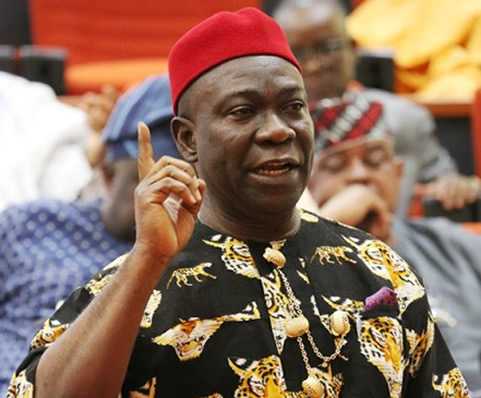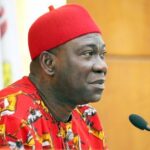Former Deputy Senate President, Senator Ike Ekweremadu has warned that unless Nigeria stops executive legislation through Executive Orders, the country may be heading towards authoritarianism and possible dictatorship.
Ekweremadu said this in a paper on “Executive Order and Democratic Governance” at the ongoing 60th Conference of the Nigerian Bar Association, NBA, in Abuja on Wednesday.
Autonomy: ‘Why Buhari delayed gazetting of Executive Order 10’
Buhari seeks conclusion of criminal cases in 12 months
“Democracy envisages the division of governmental powers into three different arms, each with distinct powers and responsibilities clearly provided for in a country’s grundnorm. The philosophy behind this compartmentalisation of powers is the need to preserve the liberty of citizens and prevent abuse and tyranny by one arm of government over the other,” he said.
“Section 4 of the 1999 Constitution provides that the legislative powers of the Federal Republic of Nigeria shall be vested in the National Assembly. The National Assembly is empowered to exclusively legislate for the peace, order, and good government of the federation or any part of it with respect to any matter on the exclusive legislative list in the second schedule to the constitution.
“The only section in the Constitution that confers the executive with some form of quasi-lawmaking powers is section 315 of the Constitution, which provides that the President or the Governor, as the case may be, may modify the text of an existing legislation, as he considers necessary or expedient, to bring such law into conformity with the provisions of the constitution”.
“It must, however, be understood that Section 315 is not a blanket provision enabling a vicious incursion into the legislative domain of lawmaking.
“It is first, a transitional provision inserted into the Constitution upon the return to democratic rule in 1999 to enable the government to fill in legislative gaps typically expected of a country transitioning from a military system to democracy. Even more, the authority to modify legislations must be limited to existing laws and not to enact or make new laws.
“A proper understanding of the context of Section 315 and the reason why it was inserted in the first place will reveal that the provision has duly outlived its usefulness and ought not to remain a part of our body of laws,” Ekweremadu explained.
He regretted that the constitution amendment bill to delete the provision from the constitution in the 8th National Assembly was not signed by the President.

 Join Daily Trust WhatsApp Community For Quick Access To News and Happenings Around You.
Join Daily Trust WhatsApp Community For Quick Access To News and Happenings Around You.


